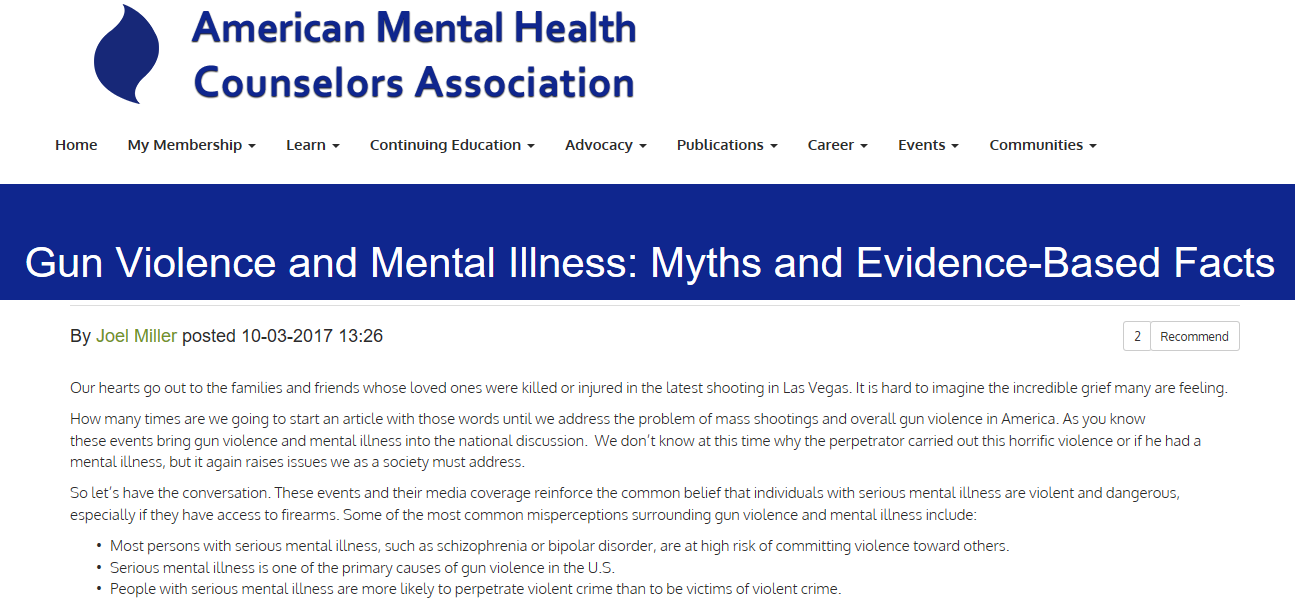
As we are still in the wake of the tragic Florida school massacre, it is important that reason and logic hold sway and that emotion and anger do not distort our perspective or judgment. Following the shooting, the media was filled with talk about the need for background checks to identify those with mental illness and prevent them from purchasing guns . While this proposal, in itself, is a logical and reasonable measure to cut down on what has become a dreadful common occurrence, my concern is that references to and discussion of mental illness be done carefully.
Given the stigma which still exists concerning those who suffer from emotional problems, it is important that the problem of gun violence and our rush to find solutions not result in exacerbating the ongoing prejudice which exists toward the emotionally disordered community.
Specifically, three myths contaminate and distort rational discussions about the current epidemic of mass shootings:
- Folks with psychological disorders are dangerous and violent.
- Serious mental illness is the primary cause of gun violence.
- People with serious mental illness are more likely to perpetrate violent crime rather than to be victims of it.
Quite frankly the research and compiled evidence does not support these beliefs or ignorant views. Numerous studies like the one cited here, http://www.amhca.org/blogs/joel-miller/2017/10/03/gun-violence-and-mental-illnessmyths-and-evidence-based-facts have concluded that , by a wide margin, most mentally ill persons are non violent, not the cause of mass shootings and are more likely to be the victims of violent crime rather than commit it .
You may have heard that the Florida school shooter, Nikolas Cruz, was mentally deranged and, of course, that goes without saying. However to imply that all folks with mental problems are dangerous is illogical and prejudicial. The logical fallacy we learned in college goes like this: While all cows have four legs, all four legged creatures are not cows . Indeed that which drives an individual to mass homicide is an extremely rare occurrence which can not be thrown in together with the larger mental health population as a whole.
Dealing with the inexplicable terror of the recent school shooting goes beyond our human capacity to cope. The grieving and recovery process for many of those directly affected by the horror is complex and will take a long time and intensive treatment. Even for those of us who did not experience an immediate loss, the shock of such occurrences, which have become far too common, remains and disturbs our own everyday sense of safety and life security.
Going forward, although no immediate solution is in sight, we must not make matters worse by turning on one another by blaming or scapegoating disadvantaged minorities like those who struggle with mental illness. We must continue to love one another and have faith that the madness which grips our society will end and that sanity will return to our land. Until that happens we must not give up but, instead, we must continue to talk and demand from our representatives, at all levels, that reasonable measures be employed to reduce the incidence and magnitude of these terrible crimes.
Rev. Michael Heath, LMHC, Fellow AAPC 2 18 2018


